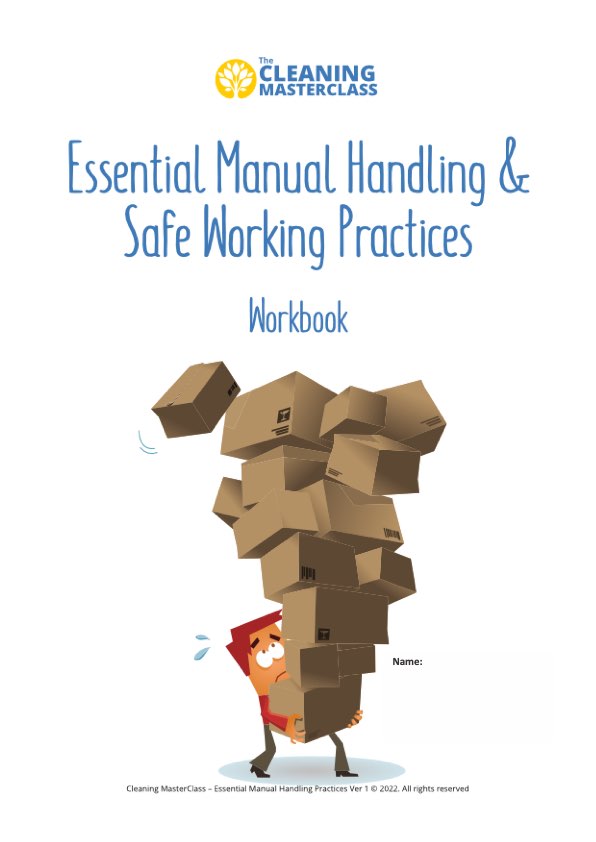
20 Dec Promoting Safe Working Practices: The Importance of Good Manual Handling in the Cleaning Industry
It is generally, and rightly, accepted that adopting safe manual handling is vital for two main reasons, to ensure the safety, health and well-being of staff, and reducing the financial impact on businesses through absenteeism and regulatory non-compliance.
When we think about manual handling the archetypal view in training is often lifting and carrying loads (typically boxes) and adopting the correct posture while sitting at a desk. Where do cleaning and housekeeping staff fit in with this view?
You will not be surprised to know that cleaning is a highly physical job with a constant demand placed up on staff to perform many physically demanding, and often complex repetitive tasks. While cleaners and housekeepers usually don’t lift heavy items as such, there are a number of factors that place these people at greater risk of injury: the average age is mid to late fifties, the time spent performing physical work is the majority of their work shift, cleaning tasks and equipment poses a constant strain on their bodies through posture, resistance and unequal loading. In essence, cleaners and housekeepers are subjected to near constant and repeated strain across many areas of the body from the wide variety of tasks they undertake, and the postures those tasks place on them.
What We Offer
There are hundreds of manual handling courses available, but your average manual handling course is far too generic and too generalised to cover the specific needs of cleaning staff. Through our experience and knowledge of the cleaning industry, we offer a manual handling and safe working practices training that is completely designed to address and reduce the risks of injuries through routine and Ad Hoc cleaning tasks.
What Is In The Course
This short course focuses on one narrow topic in the wider subject of health and safety, that of manual handling. Cleaning is a highly physical job with a requirement to perform many physically demanding and complex repetitive tasks constantly throughout a working shift. These tasks place significant loading and repetitive strain on various parts of the body, which over time can lead to life-changing injuries. This course seeks to teach an understanding of the causes and effects of manual handling in the cleaning profession to help reduce and prevent further chronic injuries.

Summary of Learning Objectives
On end of this course, you will be able to:
- Identify Manual Handling Risks: Participants will be able to recognise potential hazards and risks associated with manual handling tasks in the workplace.
- Understand Manual Handling Principles: Participants will gain an understanding of the fundamental principles of safe manual handling, including body mechanics, lifting techniques, and ergonomics.
- Demonstrate Proper Lifting Techniques: Participants will be able to demonstrate correct manual handling techniques to minimise the risk of injury.
- Apply Risk Assessment Skills: Participants will learn to conduct a basic dynamic risk assessments for manual handling tasks, identifying hazards, evaluating risks, and proposing controls to mitigate those risks.
- Explain the Musculoskeletal System: Participants will understand the basic structure of the musculoskeletal system, particularly how it relates to manual handling and injury prevention.
- Implement Workplace Safety Procedures: Participants will be able to apply workplace safety procedures and policies related to manual handling, including the use of personal protective equipment (PPE) and equipment maintenance.
- Promote a Safety Culture: Participants will comprehend the importance of promoting a culture of safety in the workplace, encouraging effective communication and teamwork to ensure safe manual handling practices.
How is the Training Delivered
We can deliver the training to your staff in your premises or if that is not feasible, we can deliver the training live online. If neither option is convenient to you, or if you wish to create your own internal training programme, we can supply everything you need to enable your trainer to deliver the same training course.
Interested? Contact Us
Please tell us about your organisation, the number of staff you are looking to train and whether you want onsite, online or your own training programme.

